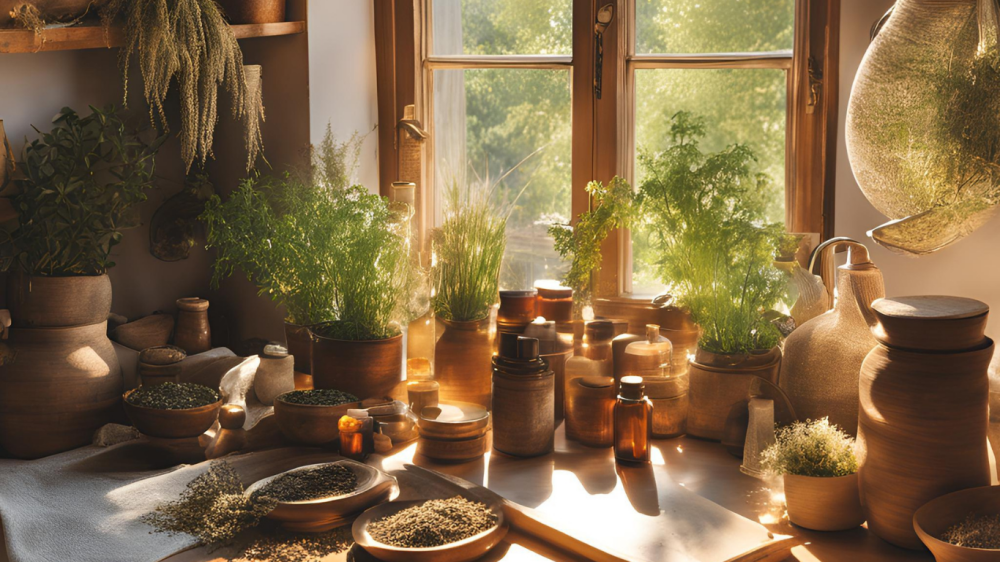
Natural remedies have a deep-rooted history spanning centuries, and they’ve influenced cultures across the globe in significant ways. Long before modern medicine became a staple, people were relying on plants, herbs, and other natural resources to heal ailments. Each culture added its own spin, enriching the repository of natural medicine. From the ancient Egyptians using honey for antibacterial purposes to the Chinese utilizing acupuncture for pain relief, there’s a rich tapestry of knowledge out there.
Traditional healing practices might seem outdated to some, but they’ve continued to be relevant in today’s world. As the world moves towards more sustainable and holistic living, many are rediscovering these ancient practices. For instance, Ayurveda, which originated in India, is not just about treating diseases but maintaining overall well-being and balance in life. The appeal is undeniable, especially in an age where people seek alternatives to chemical-based treatment options.
Scientific research is starting to catch up with what many cultures have known for a long time — that some of these age-old remedies actually have the potential to be beneficial. Studies have shown that certain herbs and plants can indeed help with a variety of conditions. For instance, turmeric, with its active compound curcumin, has been found to possess anti-inflammatory properties.
The wisdom passed down through generations by indigenous and cultural experts offers insight that modern science is only beginning to understand. These communities have used natural remedies for healing, not just the body but also the mind and spirit. Their practices encompass a holistic approach, which promotes harmony with nature and within oneself. This knowledge serves as a valuable guide in exploring natural options that complement conventional medical treatments.
Exploring Nature’s Pharmacopoeia: Popular and Effective Natural Treatments

Plants and herbs have been the backbone of natural treatments for generations. Nowadays, many of these remedies are gaining popularity again as people embrace a more organic lifestyle.
Herbal teas like chamomile and peppermint are more than just comforting drinks. They offer calming effects and aid digestion. Essential oils such as lavender are highly favored for their soothing properties, often used in aromatherapy to promote relaxation and relieve stress.
Scientific studies continue to investigate the efficacy of these remedies. For example, ginger, often praised for its ability to relieve nausea, has backing from modern research to prove its benefits in handling motion sickness and even the nausea caused by chemotherapy.
Real-life stories add weight to the conversation about natural remedies. Individuals who turn to ginger for nausea or peppermint for headaches frequently share their successes, building a community of believers who advocate for these solutions alongside conventional medicine.
While exploring natural treatments, it’s important to tread carefully. Some widely accepted beliefs about natural remedies are not entirely accurate. Misinformation can lead to ineffective use or even harm. A critical look at the available research, supplemented with professional guidance, helps separate myth from fact.
Navigating the realm of natural treatments demands awareness and a bit of skepticism to ensure safe and beneficial use. Each remedy might have different results, so understanding the needs and conditions of one’s own body is key.
Integrating Natural Remedies: Safety, Efficacy, and Future Prospects

Natural remedies can be incredibly appealing, but it’s essential to approach them with caution and informed guidance. Consulting healthcare professionals before adding any new treatment is vital to avoid adverse effects and interactions with prescribed medications. This step ensures that the remedies chosen complement and do not conflict with existing treatments.
Safety is another key aspect when integrating natural remedies into your health regimen. Not all that is natural is inherently safe. Understanding the correct usage, dosage, and application is crucial to avoid negative side effects. Some herbs, for instance, might cause allergic reactions or interfere with medications, so being cautious is paramount.
Research and innovation are driving forces in making natural therapies a part of mainstream treatments. Increased scientific interest and studies have paved the way for safer, more effective use of natural remedies. Academic and clinical research is constantly uncovering new insights into how natural compounds interact with the human body, offering promising advancements.
Looking ahead, natural remedies face challenges with acceptance and regulation. The road to full integration with conventional medicine involves overcoming skepticism, standardizing practices, and ensuring ethical sourcing of natural products. However, with more people advocating for holistic health approaches and the continued progression of research, the future looks promising.
Embracing natural remedies requires a balanced view, blending ancient wisdom with modern science. This integrated approach provides opportunities for improved wellness and a better quality of life. Staying informed, seeking professional advice, and understanding both the benefits and limitations can lead to a safe and rewarding health journey.


Recent Comments